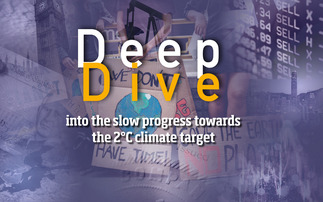
What do you think the tightening of regulatory attitudes to sustainable investing means in terms of broad industry direction?
We may be entering into a shake-out period. The large number of funds launched in the last one or two years have come to the market with different definitions, interpretations and views of what sustainability should be. Going forward, we'll see more ‘law and order' and more consistency about what sustainability means.
Before recent interventions, some saw creating a sustainable fund, either in isolation or through the evolution of an existing fund, as a relatively cheap and easy option. But it's actually a very expensive and complicated option because of the degree of investment process change that you need if you are going to build a rounded picture of a company's sustainability.
Can you put any sort of magnitude on that extra resourcing?
It's a reasonable assumption to say you might need twice as much resource to run a sustainable process as a traditional one. The reason for that is if you're purely financially focused, you're looking at P&L, balance sheets, cash flows; whereas if you're sustainability focused, you additionally need to examine all the ESG factors. And we think you can do a similar amount of analysis on ESG as on the financials.
Is the resourcing just a case of employing more people, e.g., ESG analysts?
Only in part. There's much more subjectivity in sustainability than in financial analysis and clients can have strong views - for example, are the US tech giants sustainable? A non-consensus view may be regarded as profoundly wrong by your client.
So, we think that sustainable approaches need due process, including a degree of oversight from people who are independent from the performance of the fund so the fund manager can say, "It's not just me deciding what's right and wrong in the world: we enact a process which gives us information and supports our conclusion."
Does the growth in quantitative data about corporate sustainability reduce, or compound, these issues?
The volume of information that corporates are now publishing on E and S particularly - G has been there for a while - is night and day versus even a couple of years ago. Quantitative metrics now need to be sought out to evidence the points that corporates might have made to us on a purely qualitative basis in the past.
That is creating, along with a re-emphasis on negative screening, much bigger and broader sustainability research notes than even two years ago.
Where does the sustainability analysis sit within your wider investment process?
It comes first. If we can't prove to ourselves that it's a sustainable business, then we won't even bother doing the financial work.
For us, conducting a thorough sustainability test is philosophical: we only invest in companies that we regard as sustainable companies. But we'd argue it is also practical, because if the company is not doing well in terms of sustainability, ultimately we think it is less likely to do well financially.
Click here to read how Mike Fox's team are building a more three-dimensional approach to sustainability - and for Fox's views on our present place in the economic cycle and the implications for sustainable investing.
This post was funded by Royal London Asset Management.
For Professional Clients only, not suitable for Retail Clients. The views expressed are the contributor's own at the date of publication unless otherwise indicated, which are subject to change and are not investment advice.
INVESTMENT RISKS
Past performance is not a guide to future performance.
The value of investments and the income from them may go down as well as up and is not guaranteed. Investors may not get back the amount invested.
IMPORTANT INFORMATION
For Professional Clients only, not suitable for Retail Clients. This is a financial promotion and is not investment advice.
The views expressed are those of the author at the date of publication unless otherwise indicated, which are subject to change, and are not investment advice.
For more information on the sustainable funds range or the risks of investing, please refer to the relevant Prospectus or Key Investor Information Document (KIID), available via the relevant Fund Information page on www.rlam.co.uk.
Issued in December 2021 by Royal London Asset Management Limited, 55 Gracechurch Street, London, EC3V 0RL. Authorised and regulated by the Financial Conduct Authority, firm reference number 141665. A subsidiary of The Royal London Mutual Insurance Society Limited.












